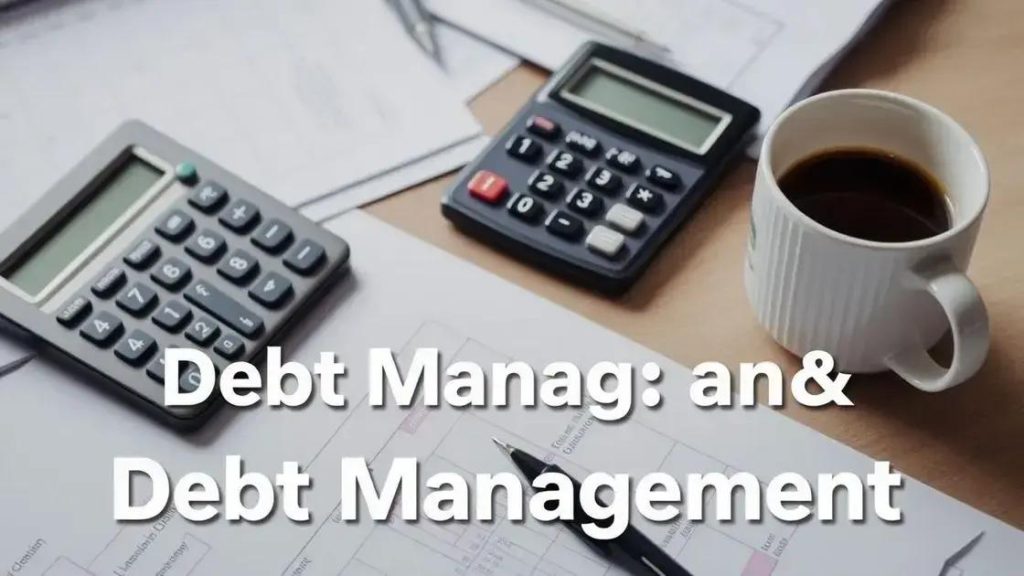Debt consolidation: simplify your financial journey

Anúncios
Debt consolidation combines multiple debts into a single loan, simplifying payments and potentially lowering interest rates, making it an effective strategy for managing financial obligations.
Debt consolidation is gaining attention as an effective solution for managing multiple debts. Have you ever felt overwhelmed by various payments? You’re not alone. This article will dive into how consolidating your debts can not only simplify your finances but also bring peace of mind.
Anúncios
Understanding debt consolidation
Understanding debt consolidation is crucial for anyone looking to simplify their financial life. This process involves merging multiple debts into a single payment, making it easier to manage.
One of the first steps is to realize why debt consolidation can be beneficial. By consolidating, you can reduce the number of monthly payments, which can help you stay organized and reduce stress.
Types of Debt Consolidation
There are several ways to consolidate your debts. Knowing the options available can help you choose the best one for your situation.
Anúncios
- Personal loans: These are loans you can take from a bank or credit union to pay off debt.
- Balance transfer credit cards: These allow you to transfer your existing debts to a new card with lower interest rates.
- Home equity loans: If you own a home, you can borrow against its value to pay off other debts.
- Debt management plans: These are set up through credit counseling services to help pay off your debts over time.
Each of these methods has its pros and cons, and understanding them will help you make an informed decision. For instance, personal loans may come with higher interest rates compared to secured loans like home equity. Balance transfer credit cards often have low introductory rates, but be mindful of the fees involved.
Benefits of Debt Consolidation
Consolidating debts can offer many benefits, including lower monthly payments and reduced interest rates. This means that more of your money goes towards paying off your original debt instead of interest charges.
Additionally, having a single payment to manage can simplify your financial routine. It helps in budgeting and ensures you do not miss payments, which can lead to further debt issues. Moreover, being timely with your payments can improve your credit score over time, helping you in future financial endeavors.
As you explore debt consolidation, consider your current financial situation and goals. Consult with a financial advisor if necessary. This strategy can help set you on a path to greater financial freedom and stability.
Benefits of consolidating debts
There are numerous benefits of consolidating debts, making it an appealing option for many individuals. By combining multiple debts into one, you can streamline your financial obligations, making them easier to manage.
One primary benefit is the potential for a lower overall interest rate. When you consolidate, you may secure a rate that is less than what you’re currently paying on various debts, which can lead to significant savings over time.
Improved Financial Management
Consolidation also simplifies your payment schedule. Instead of keeping track of several dates and amounts due, you’ll only have to remember one monthly payment.
- Easier budgeting: With one payment, it’s easier to allocate funds and avoid missing payments.
- Reduced stress: Fewer payments mean less stress about when and how much to pay.
- Focus on paying down debt: You can concentrate your efforts on eliminating your debt rather than juggling multiple bills.
- Better credit score: Making timely payments can improve your credit score.
Additionally, consolidating debts can help you avoid defaulting on loans. This is important because missed payments can lead to penalties and increased interest rates, further complicating your financial situation.
By consolidating, you also might have the chance to negotiate better terms with lenders. They may be more willing to provide concessions if they know you are consolidating to pay off your debts.
Long-term Financial Freedom
Ultimately, the journey to financial freedom can be significantly enhanced through debt consolidation. When you lower your interest rates and have a clear payment path, you can pay off your debts faster.
With determination, this strategy can lead to less debt overall, helping you achieve your financial goals more quickly.
How to choose the right consolidation option

Choosing the right consolidation option can be a critical step in managing your debts effectively. With several options available, understanding each can help you make an informed decision that suits your needs.
First, consider your total debt amount and the types of debts you have. This will guide you in selecting the most appropriate consolidation method.
Assess Your Financial Situation
Your financial health plays a significant role in choosing the right option. Gather your financial statements to evaluate your income, expenses, and existing debts.
- Credit Score: Check your credit score to understand what types of loans you may qualify for.
- Interest Rates: Compare the interest rates of different options, as this will affect your long-term payments.
- Fees: Be sure to understand any fees involved in consolidation to avoid hidden costs.
- Monthly Payment: Consider how much you can afford to pay each month without straining your budget.
After assessing your financial situation, research the available consolidation options. Common methods include personal loans, balance transfer credit cards, and home equity loans. Each option has its pros and cons, depending on your financial goals.
Understanding Each Option
Personal loans can consolidate all your debts into one fixed monthly payment. This is often a straightforward option, but interest rates can vary based on your creditworthiness.
Balance transfer credit cards allow you to transfer multiple credit card balances to one card, often at a lower interest rate during an introductory period. This can save you money if you pay off the balance within that time.
Home equity loans use your home as collateral. While this can yield low-interest rates, it carries the risk of losing your home if payments are missed. Carefully evaluate your risk tolerance before choosing this option.
Once you have reviewed the options, it’s wise to ask for advice. Speaking to a financial advisor can provide insights tailored to your specific situation and help in making the best choice for your debt consolidation.
Common mistakes to avoid
When considering debt consolidation, it’s important to avoid common mistakes that can undermine your efforts. Knowing what to steer clear of can make your financial journey more effective and less stressful.
One mistake people often make is not fully understanding the terms of the consolidation. It’s crucial to read the fine print and know the interest rates, fees, and repayment terms before committing to any option.
Not Comparing Options
Failing to shop around for the best consolidation solution can lead to poor choices. Take time to compare various lenders and their offers, as each may have different rates and terms.
- Interest rates: Higher rates can significantly increase your total payable amount.
- Fees: Look for any hidden fees that can eat into your savings.
- Payment terms: Make sure you understand how long you will be paying.
An additional common mistake is using consolidation as a quick fix for underlying financial issues. If you do not change spending habits, you may find yourself in debt again shortly after consolidating.
Ignoring Your Credit Score
Your credit score plays a critical role in determining the interest rates you can secure. Ignoring your credit score can lead to consolidating your debt at unfavorable rates.
Check your score beforehand and take steps to improve it if necessary. A better credit score can open doors to better rates, making the consolidation process more beneficial.
Failing to keep track of your progress after consolidation is another mistake to avoid. Regularly monitor your debt levels and make sure you are on track with your payments. This can help you stay on top of your finances and avoid slipping back into debt.
Steps to successfully consolidate your debts
Successfully consolidating your debts involves a series of careful steps. Following these steps can make the process smoother and help you achieve financial stability.
The first step is to evaluate your total debt. Gather all your financial statements to understand how much you owe. Knowing your total debt will help in choosing the best consolidation strategy.
Research Your Options
Next, research different consolidation options available to you. This may include personal loans, balance transfer credit cards, or debt management plans.
- Personal loans: These can help combine your debts into one manageable payment.
- Balance transfer: Look for cards that offer low or zero-interest rates for an initial period.
- Debt management plans: Seek assistance from credit counseling services to establish a plan.
After selecting a few options, compare them carefully. Look at interest rates, loan terms, and any fees associated with each option. This comparison will help you choose the most affordable and suitable option for your needs.
Make the Application
Once you have decided on an option, gather the necessary documents for the application process. This may include proof of income, credit history, and any other financial information needed.
Fill out the application accurately and honestly. Lenders will evaluate your creditworthiness based on this information, so ensure everything is correct to avoid delays.
After approval, it’s important to pay off your old debts promptly. Use the funds from the consolidation loan or the balance transfer card to pay off your debts immediately. This step is crucial to avoid accumulating more debt.
Stick to the Plan
Lastly, create a budget that aligns with your new payment plan. Monitor your expenses closely to ensure you are not accumulating new debt. Stick to your repayment schedule and make payments on time to improve your credit score and achieve financial freedom.
FAQ – Frequently Asked Questions about Debt Consolidation
What is debt consolidation?
Debt consolidation is the process of combining multiple debts into a single loan, making it easier to manage payments and potentially lower interest rates.
What are the benefits of consolidating my debts?
Consolidating debts can lower overall interest rates, simplify payments, improve budgeting, and help avoid missing payments.
Can anyone consolidate their debts?
Most people with multiple debts can consolidate, but eligibility may depend on credit score, income, and the types of debts.
What common mistakes should I avoid when consolidating my debts?
Avoid ignoring the fine print on loans, failing to compare options, and not addressing the root causes of your debt to prevent falling back into debt.





